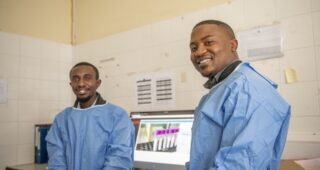State of the World’s Children Report 2014

On January 30, UNICEF launched its State of the World’s Children 2014 in Numbers report, which identifies and addresses the gaps that prevent the most disadvantaged of the world's 2.2 billion children from accessing basic human rights. This marks the 30th anniversary of the State of the World’s Children data report and demonstrates the progress that has been made globally to address the needs of children. This report demonstrates the progress that the global community has made since the Convention on the Rights of the Child (CRC) was signed in 1989, but significant work is still needed to ensure children have equal access to health care, education, and other basic rights.
The report focuses on the principle that reliable data is needed to accurately identify the disparities children face and take the necessary steps to improve their quality of life. As noted in the report, “being counted makes children visible, and this act of recognition makes it possible to address their needs and advance their rights.”
One indicator used in the report is “comprehensive knowledge of HIV.” This indicator evaluates the knowledge young people (aged 15-24) possess about HIV. Approximately half of new HIV infections in 2012 occurred in this age group. By increasing access to information and HIV education, children will become more knowledgeable about HIV risk factors and be better able to protect themselves from acquiring the disease.
The Elizabeth Glaser Pediatric AIDS Foundation (EGPAF) applauds UNICEF for its work to identify health and human rights disparities in children and encourages other organizations to use this data to better reach those children in need.
As the report points out, “data do not, of themselves, change the world. They make change possible – by identifying needs, supporting advocacy, and gauging progress. What matters most is that decision-makers use the data to make positive change, and that data are available for children and communities to use in holding duty-bearers to account.”
Additional work is needed in order to better address the needs of children impacted by the HIV pandemic, and UNICEF’s report helps to identify those needs. Through innovative implementation, research, and advocacy efforts we can make strides in the fight to eliminate pediatric HIV.
Rachel Eisenberg is EGPAF's Public Policy Associate Officer based in Washington, D.C.
Rachel Eisenberg
General



